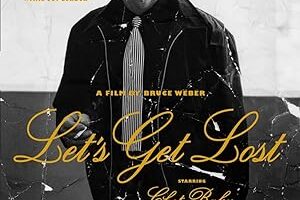Tropic Sprockets
Gone Girl
David Fincher’s “Gone Girl” has arrived at The Tropic, based on Gillian Flynn’s page-zipping novel. Fincher (The Social Network) has wonderfully brought out the alien and isolating quality of this contemporary “surprise” story. The director’s trademark visual tints of gray-green and brown are well in evidence here, making every person look as if they are either confined in a computer screen, or have morphed into a group of trapped bugs under smoked glass.
Nick Dunne (Ben Affleck) is a lethargic husband. Once, he had the virile curls of a superhero—he was writing well and in love with an effervescent and bubbling Amy (Rosamund Pike) who appears as rare as Tiffany glass. Indeed with the cinematography by Jeff Cronenweth, Amy shines, a pale and racy dollop of feminine mercury.
In impressionistic snippets, we get small details of Nick and Amy’s marital adventures, complete with steam and motion, as Amy caresses and tears at Nick’s clothes almost in the style of an Adrian Lynne (Fatal Attraction) film.
But then, Nick gets laid off. The lovebirds argue and events go south. On the morning of their anniversary, Nick leaves for work at his bar. After a talk with his sister (Carrie Coon) he receives a call that his door is left open with his indoor cat outside. He races home to find his McMansion empty. Amy is gone.
The film is punchily edited to give a knock in the eye and heart with each image alternately running across your field of vision either like cool syrup, or throttling adrenaline. Ben Affleck is perfect as the monotone polo shirted Everyman, Nick. He mumbles often and it is a nice touch that, as in the novel, he is a man who is both inhibited and haphazard with his emotions: They just don’t match.
Nick Dunne is clearly Affleck’s best work. This is a visceral haunt story in the best sense as taut and anxious as “The Silence of the Lambs.”
Rosamund Pike, too, is terrific. She has the ability to seem like a chimerical spirit, not of the flesh even though she is clearly ambulatory. Neil Patrick Harris delivers well as a milquetoast creep who lives in a Thomas Kincade style house as if remodeled by Stanley Kubrick.
Also well cast is the acting of Tyler Perry, as a vain but obsessively detailed and controlling lawyer. Under David Fincher, the overriding and well executed tone is one of remoteness, creepy nonchalance and transgression and we are never sure of what is about to transpire, no matter if it details this couple’s past, present or future.
The film has one singular scene that almost outdoes Hitchcock in one anoxic and jarring moment that will sneak up on you quicker than the snap of some nouveau riche bedsheets. But no spoiler here. “Gone Girl” is kaleidoscopic, spacey, askew and masterful in its millennial noir, but better still, it might have you sincerely disturbed about this particular arc of a shared life and the elements contained within.
The Equalizer
Denzel Washington has been an excellent vigilante and/or sour cop delivering plenty of ice and sarcasm in many films from “Man on Fire” to “2 Guns.” Under the direction of Antoine Fuqua (Training Day), Washington holds steady and does not disappoint.
“The Equalizer” is based on the vengeful action ‘80s TV series, created by Michael Sloan and Richard Lindheim, which starred Edward Woodward. In this version, Washington is Robert McCall, a pleasant yet compulsively methodical and enigmatic man by turns.
McCall works at a Home Depot type store and when his co-workers ask him about his past, he is entertainingly evasive, telling them he used to work for Gladys Knight as one of the Pips. McCall frequently goes to a Boston diner which is right out of an Edward Hopper painting.
He sits by himself and reads works of classic literature. McCall is one man content with himself; he is an incurable insomniac but not a tormented one. During one night at a lonely literary table, he strikes up some banter with a troubled young woman, Alina (Chloe Grace-Moretz), an aspiring singer who is working as an escort for the Russian mafia.
McCall witnesses a charmless and grunting thug horribly abusing her. The next night he goes to the mafia headquarters and, as you can guess, blood is spilled. This is essentially a good guy / bad guy avenger film, but Denzel Washington is such a presence and his gallows humor in exacting justice goes a long way.
Director Fuqua gives this film a visceral and tense atmosphere, creating an almost vegan nightmare of animal blood, meat, leather and satanic tattoos where porcine men slobber over flesh both living and recently dead. We know McCall is a good guy per se, but he isn’t all that nice.
The language of the sociopath has been assimilated within him to be used as a measure of justice so to speak and the film brings this out well. We are in the realm of something like The Batman, sans cowl, and Washington keeps us in thrills as he coolly weighs the scales that were not weighed for him.
There are touches of grim comedy as McCall selects a hardware store hammer while at work and calmly metes out some just desserts. He can use anything at hand from the toxic to the trifling. One gets a thrill in watching this grue-measuring MacGyver.
When McCall returns some blood spattered sunglasses of a restroom-goer to the table under the Lucifer gaze of Nicolai (Marton Csokas), you know the Ray Ban man won’t be returning to his meal. These baddies are so pompous, sadistic and arrogant that the apprehensive pleasure is in wondering just how far McCall will go.
In one scene Andri (Vitaliy Shtabnoy) is so self-assured and callous that McCall promptly ties Andri to the floor, giving away a sizable portion of his cash to his workers. But don’t say McCall is Santa Claus to the victimized, for his gifts are bloody.
Gore is often present and it is gratuitously given. There are punctured, spouting, gurgling throats and eviscerated guts of all varieties and combinations. Slippery floors run red. Yet the one-upmanship of McCall and his horrific hijinks in dispensing justice seems to ameliorate our aversion to such pulp. Like an odd, blue collar James Bond, there is enough wistful haunt and kinky jabs in Denzel Washington’s performance to make “The Equalizer,” a Creepshow brand of karma that remains wickedly watchable and nearly camp.
Write Ian at [email protected]
[livemarket market_name="KONK Life LiveMarket" limit=3 category=“” show_signup=0 show_more=0]




No Comment